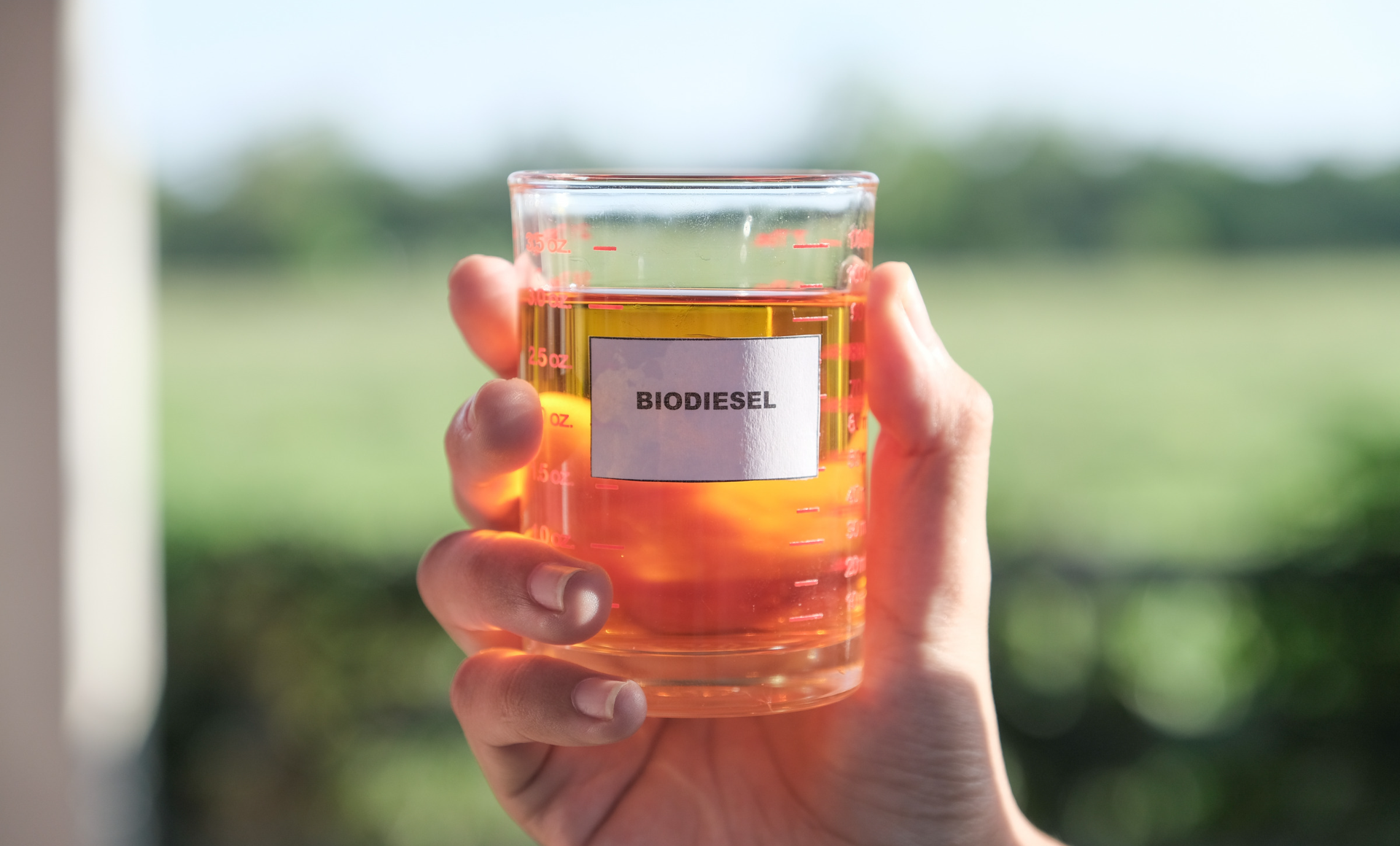Biodiesel Storage
Solving & Preventing Problems With Biodiesel Fuels & Storage Tanks

When storing B100 biodiesel for blending into petrodiesel, many of the same factors taken into consideration with conventional diesel fuel storage also apply, but on a greater level. What are some of these considerations for storing B100 biodiesel?
- Exposure to air and light causing sludge formation in the fuel over time
- Water absorption leading to high liklihood of microbial contamination
Beyond B100, biodiesel blends (even the low-level blends that are only a small proportion biodiesel to diesel fuel), are just as prone to problems from these same causes.
Water loves biodiesel
Water gets into regular stored diesel just through processes of natural condensation, building up in storage tanks and forming both free water layers under the fuel and, in many cases, layers of microemulsion within the fuel.
Biodiesel, on the other hand, likes to emulsify and hold on to water because of the presence of mono- and di-glyceride molecules that are often left over from its processing. When this happens, the emulsified water can affect how the bio-blend burns while contributing to corrosion of storage tanks. It can even freeze when it exists in biodiesel stored in cold winter climates.
Not to mention how microbes love it when water in fuel hangs around.
Microbes love stored biodiesel even more
Being a converted fat (converted from any number of fats and oils like soybean, canola, chicken fat, etc.) makes it extra prone to both the effects of water and to microbial growth. Microbes love biodiesel as a food source and it doesn’t take much for stored biodiesel blends, even blends with only 2-5% bio (that are labelled as regular diesel) to become a microbe breeding ground. And if you’re a fleet or other professional who deals with fuels for a living, you know that microbes in fuel are bad, bad news.
Suspecting problems with stored biodiesel
Your stored biodiesel might have one or more of these problems if you can detect water in the storage tank, if your rate of filter use spikes (as filters becomes plugged more easily with sludge or microbial biomass) or if the performance metrics of your equipment suddenly changes.
If you're aware enough to notice these changes, this only means you now have to fix the aftermath of the problem. And just like with your health, it’s more problematic and expensive to correct stored biodiesel problems than it is to use a little preventive maintenance and keep them from happening.
Maintaining Biodiesel Fuel Storage Quality
Any business or group storing fuel in tanks has an interest in maintaining the quality of that fuel. But what does this mean, "maintaining quality"? It means keeping the properties of the biodiesel from changing. This is best done by preventing oxidative fuel breakdown (breakdown through oxidation) from exposure to air and light, preventing hydrolytic breakdown through exposure to water, preventing catalytic breakdown from exposure to certain metals, and keeping the storage tank free from microbes.
In other words, stabilizing the fuel.
Controlling Biodiesel Quality Degradation
Degradation of biodiesel (or any stored liquid fuel, for that matter) can be prevented through preventive treatment with fuel stabilizers that interrupt the chain of reactions that happen in the fuel upon exposure to air and other elements. Oxygen, water, catalytic metals, light, heat, microbial contamination - all of these are tied to making fuel quality breakdown problems emerge faster than normal.
Those needing to preserve stored fuel quality turn to fuel stabilizers like Dee-Zol Life for diesel fuel and Bio Dee-Zol Life for stored biodiesel blends. They protect stored fuels and extend the useable storage life of these essential investments, helping the fuel user get the most out of their fuel.
Helpful Resources
What's My Fuel Health Score?
Webinar

Fuel Changes and How They Affect You
Whiteboard Presentation

The Fuel Additive Buying Guide
Report

Diesel Engine Manufacturer Position Statements on Aftermarket Fuel Additives
Report

Biodiesel Fuels Seminar and Training
Training

Biofuels - Advantages and Potential Problems
Whitepaper

Hurricane Preparation Fuels Guide
Whitepaper

Stability Issues with Biodiesel
Whitepaper

Bio Dee-Zol Life & Improving Biodiesel Blend Stability
Reference

Impact of Biofuels on the Fuels We Use
Webinar

Using Biodiesel In Cold Weather
Webinar

Fuel Storage on our Commercial Blog
3 min read
Good Fuel Maintenance Starts With Fuel Sampling
Erik Bjornstad: Dec 17, 2025
11 min read
Corrosion in Diesel Fuel Storage Tanks - Recommendations for Tank Owners
Erik Bjornstad: Dec 9, 2025




